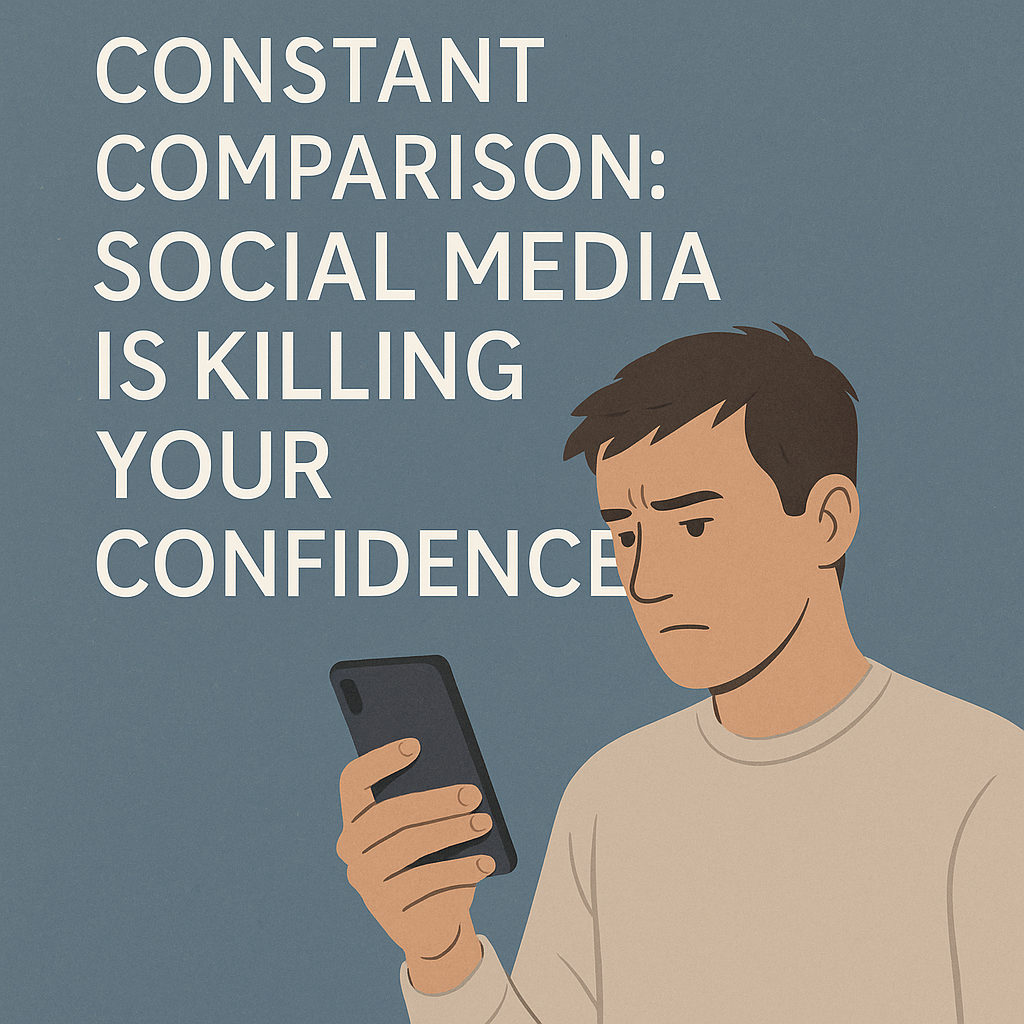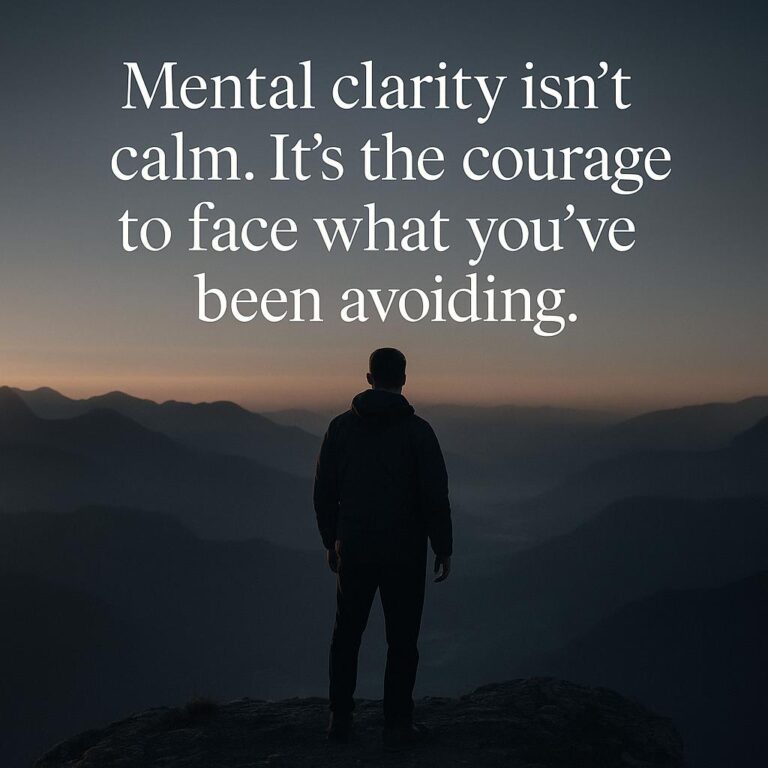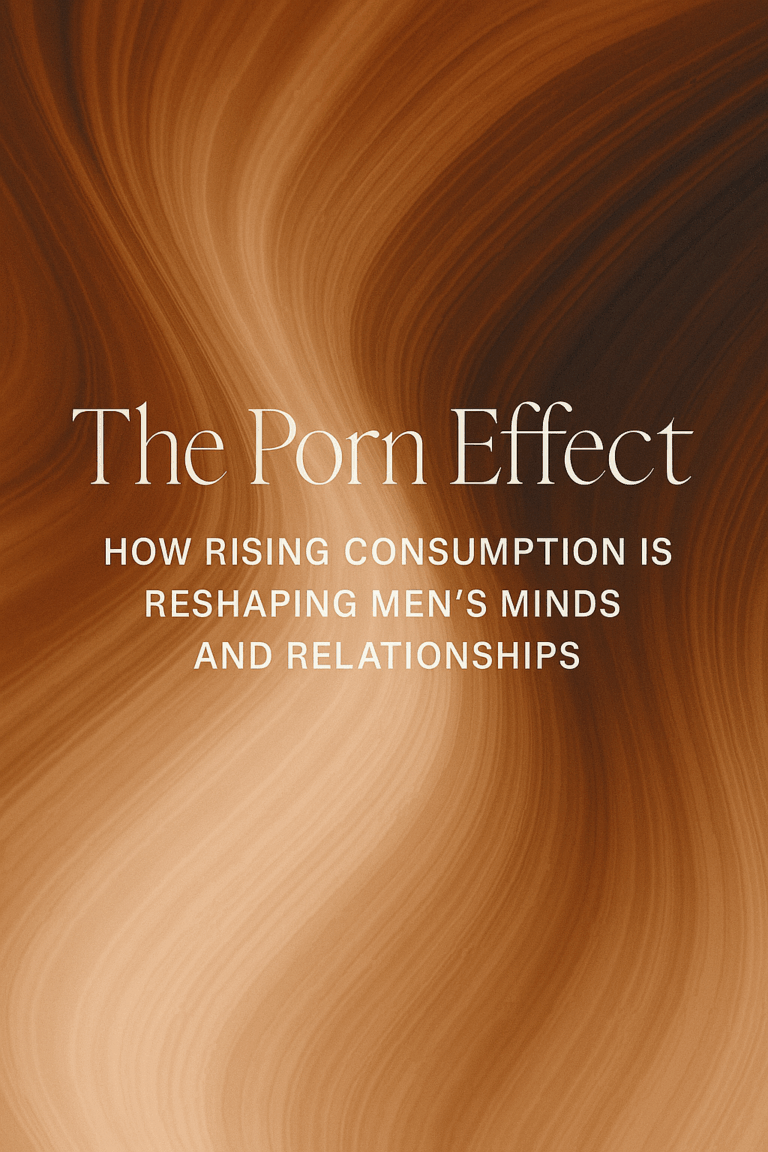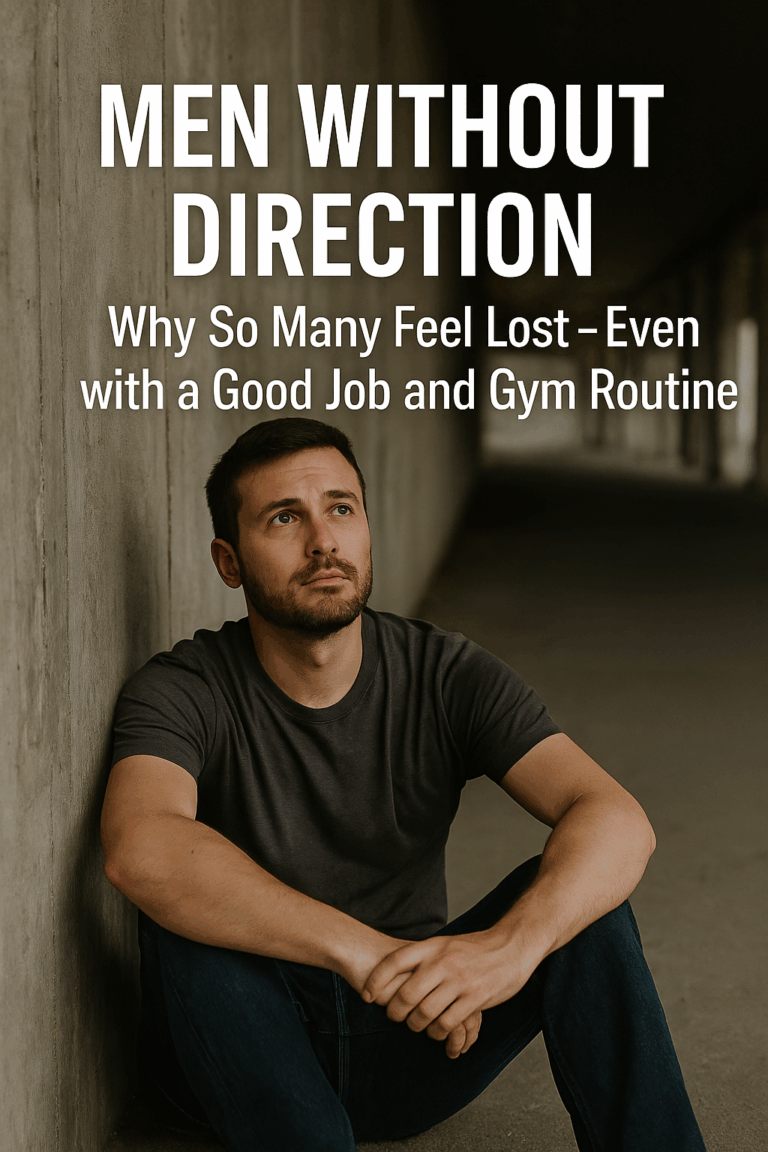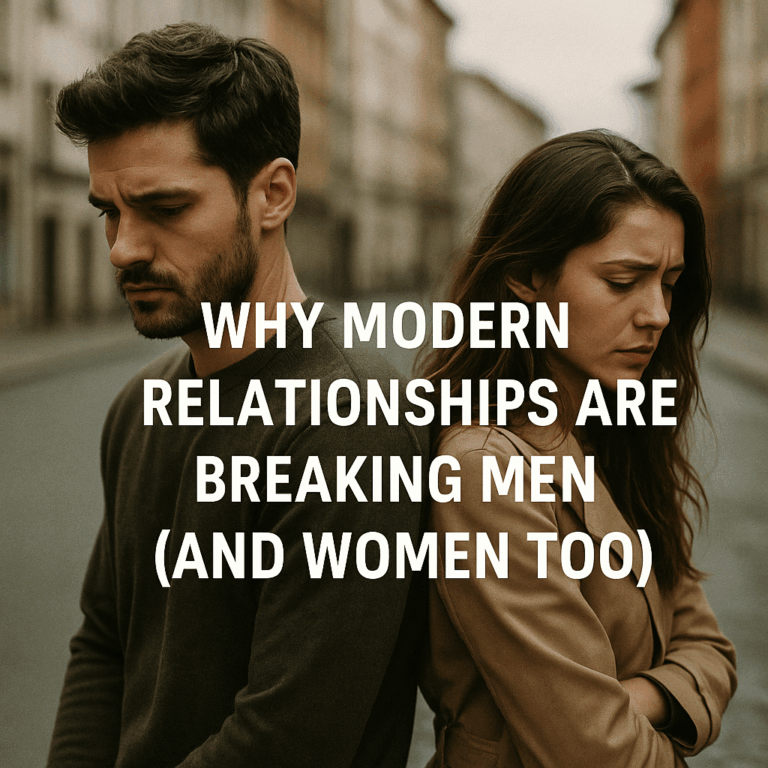Constant Comparison:Social Media Is Killing Your Confidence
By Grounded Path Life
It starts with a scroll. You open Instagram, TikTok, or YouTube for a quick break — and within seconds, you’re drowning in someone else’s highlights. A chiseled guy with six-pack abs. A digital nomad working from a beach in Bali. A friend who just bought a new car. A stranger showing off a perfect relationship, perfect job, perfect everything. And suddenly, your life feels… small.
Sound familiar? You’re not alone.
The Trap We Don’t See
Social media was supposed to connect us, inspire us, and make the world feel smaller. Instead, it’s quietly killing something crucial inside of us: our self-confidence.
We rarely post about our bad days, insecurities, or silent battles. What we see online is a filtered, cropped, edited version of reality — a highlight reel. But our brains still compare it to our behind-the-scenes. And that creates a dangerous loop:
- You scroll.
- You compare.
- You feel worse.
- You try to “catch up.”
- You post to feel better.
- You scroll again.
And just like that, confidence erodes. Quietly. Constantly. Daily.
Why Men Fall into This Trap (Hard)
As men, we’re taught to chase achievement, status, and respect. We’re wired to measure ourselves against others — not because we’re weak, but because we’ve been conditioned that way. The guy with more followers, better body, or more money becomes a silent threat to our sense of worth.
Even if you don’t realize it, every scroll is a test: “Am I enough?”
The answer — according to your feed — is usually “No.”
The Psychology Behind It: Silent Envy and Self-Doubt
Here’s what comparison really does to you:
- Silent envy: You start to resent others’ wins — not out of hate, but because you feel like you’re losing.
- Self-sabotage: Instead of being inspired, you shrink. You delay goals, avoid risks, or quit early.
- Imposter syndrome: Even when you succeed, you feel like a fraud compared to the illusion of others’ perfection.
This isn’t just emotional. It’s neurological. Studies show that frequent comparison triggers the brain’s threat response — raising cortisol levels and creating chronic stress. Over time, this affects sleep, motivation, focus, and even testosterone.
The Myth of “You’re Falling Behind”
One of the most toxic lies of social media is this: “If you’re not successful by 25, you’ve failed.”
Let’s kill that lie now.
Your timeline isn’t broken — the internet’s illusion of time is. Men peak at different stages. Some build empires at 22. Others find purpose at 40. There’s no universal clock. But when you’re constantly seeing 19-year-olds with Lamborghinis or 23-year-olds with million-dollar businesses, you forget that success isn’t always visible, and most of those stories are either exaggerated, inherited, or come with hidden pain.
What It’s Costing You
Constant comparison isn’t just annoying — it’s expensive. It steals energy, time, focus, and joy. It distracts you from your mission. It turns your self-worth into a scoreboard where you’re always behind. It creates a life where no achievement feels good enough, no win is satisfying, and no moment is fully lived — because someone else is always doing “better.”
How to Stop Comparing and Reclaim Your Confidence
Now let’s flip the script. Here’s how to get your power back:
1. Curate Your Feed
Unfollow people who trigger envy. Follow people who educate, inspire, or remind you of your values. You can admire someone without constantly consuming their content. The algorithm is your diet — choose carefully.
2. Track Your Triggers
Notice what kinds of posts make you feel “less than.” Is it fitness? Wealth? Relationships? That’s where your insecurities live — and it’s also where you need to build confidence from within, not from validation.
3. Limit Passive Scrolling
Use social media with intention. Set timers. Block apps during your work hours. Don’t scroll mindlessly when you’re bored, tired, or anxious — those are the moments when comparison hits hardest.
4. Build Offline Wins
Nothing beats real progress. Hit a new gym milestone. Learn a skill. Finish a book. Call a friend. These offline wins rebuild your self-worth from the inside out — not based on likes, but on life.
5. Write Your Own Metrics
Instead of measuring success by money or aesthetics, define what your version of a meaningful life looks like. Maybe it’s freedom. Maybe it’s peace. Maybe it’s family. That’s your scorecard — not someone else’s highlight reel.
6. Talk About It
Most men suffer silently. Talk to someone — a friend, a mentor, a therapist. Naming the comparison takes its power away. You’ll be surprised how many others feel the same but are afraid to say it.
The Truth: You’re Not Falling Behind
Here’s the truth nobody’s posting: You are not late. You’re not broken. You’re not behind.
You’re just living in a digital world that’s designed to make you feel like you are.
Social media is a tool — not a mirror. Don’t use it to measure your value. Don’t let someone’s curated story erase your real one.
In a world obsessed with performance, staying grounded is rebellion.
Final Words: Confidence Comes from Alignment, Not Approval
The most powerful men aren’t the ones with the most attention — they’re the ones who know who they are without it.
Confidence doesn’t come from applause. It comes from alignment: living according to your values, building something that matters, and showing up even when no one’s watching.
You don’t need a better algorithm. You need a better compass.
Let this be the reminder: Your path is valid. Your timing is right. Your story is still being written — and it’s already powerful without filters.

